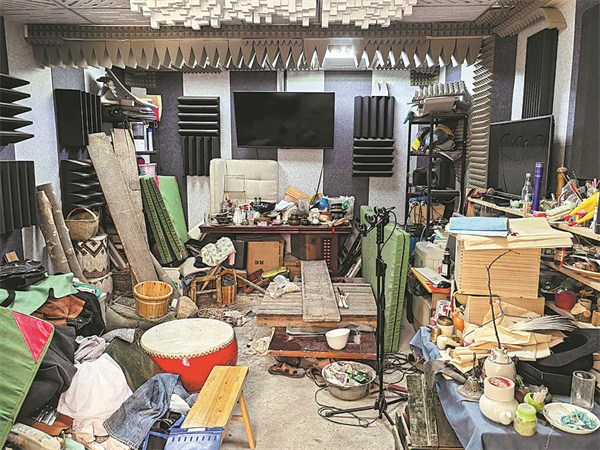Ensuring cinema sounds as good as it looks


In 2017, Qingdao earned the title of UNESCO City of Film, becoming the first city in China to receive the honor. Since then, with major productions like The Wandering Earth filmed there, China's domestic film industry has taken significant strides toward industrialization.
The roles within the industry have grown increasingly specialized, and Foley artists, once seen as technical support, are now expected to think like directors and screenwriters, using sound to deepen storytelling and enrich the cinematic experience.
Even something as simple as footsteps holds a world of complexity. "Footsteps convey emotions. The sound of someone walking with enthusiasm is different from that of someone in sorrow. Children and the elderly also have distinct footsteps," Han says, adding that he once spent three years just studying the nuances of footsteps.
"While computer-generated sound effects can achieve basic results, it is the organic, lifelike sounds that truly touch people's hearts," he adds.
For Foley artists, real-life sounds are not just auditory stimuli; they are a wellspring of inspiration. When a sound that does not exist in reality is needed for a plot, the Foley artist becomes a "magician".
While working on a key prop sound for a science fiction film, Han tried rolling steel balls on different types of wood, but the results were unsatisfactory. Finally, he found a transformer at a scrapyard. The steel balls rolling on it produced a wide range of sound variations in a short time, creating the crucial sound needed for the plot.
Completing the Foley work for a film takes at least a month. Sometimes, just a few seconds of footage can correspond to hundreds of soundtracks.
Today, Han's sound library contains thousands of sounds he has collected himself, including wind, cicada chirps and the sound of his loved one combing her hair.
"Extracting sounds from the noisy world, deconstructing and refining them into individual elements, and then using them to complete and enrich more film and television works is a wonderful and magical process," Han says.
From film locations and production bases to a hub of the film industry, Qingdao has grown alongside China's film industry. Today, the port city is building a comprehensive film ecosystem that spans creative development, production, IP commercialization, and AI-powered collaboration. Data shows that from 2018 to 2024, among the top 50 domestic box-office hits, eight have production connections with Qingdao.




































